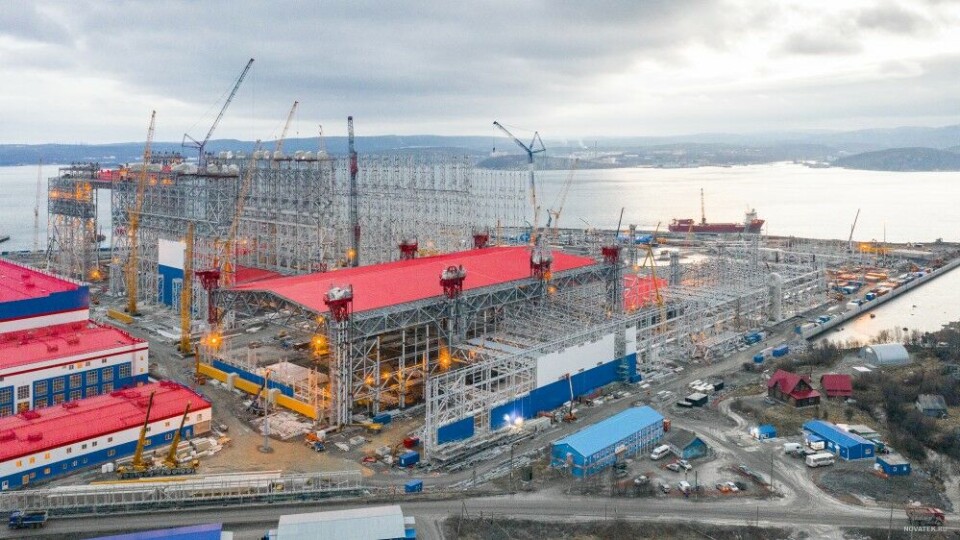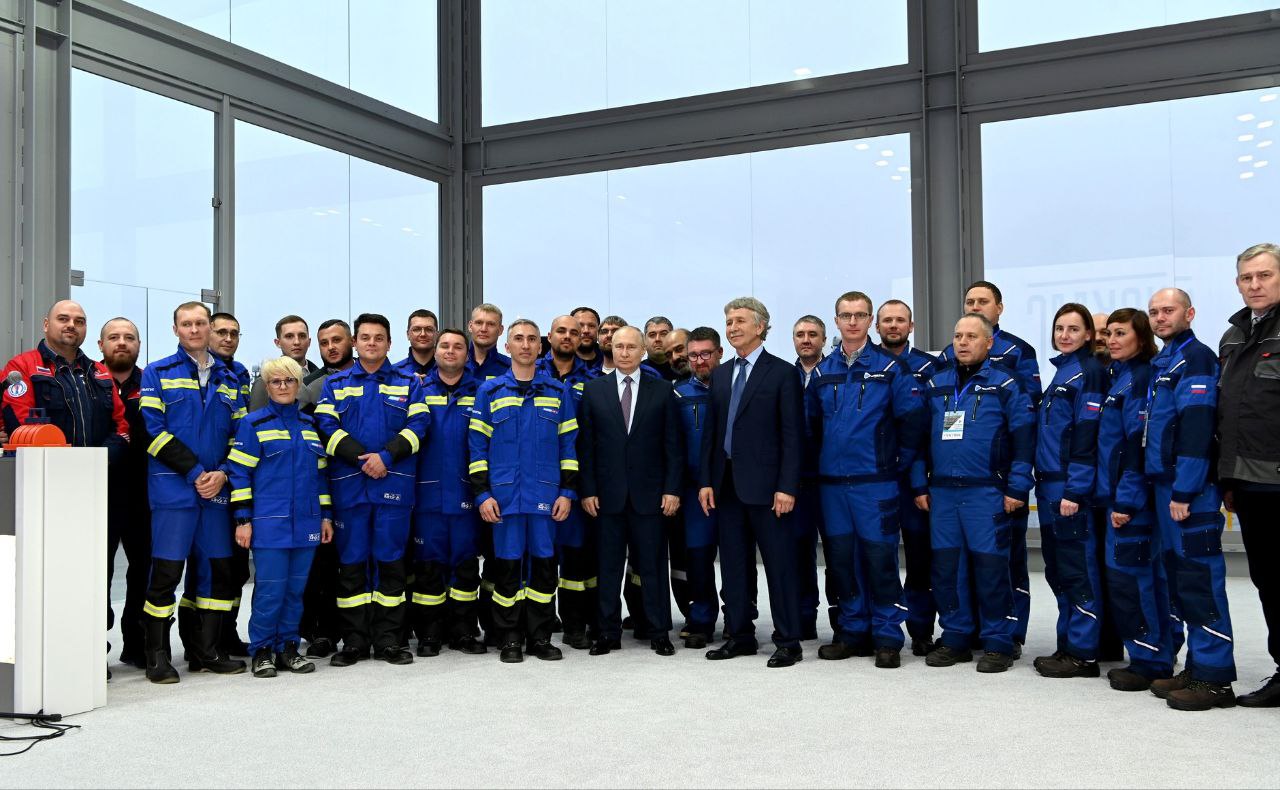
In another humiliating catastrophe for the Putin regime, the once-bustling Belokamenka oil & gas project, the largest construction site in Russia has gone dark, symbolizing the nation’s waning industrial might amid intensifying economic pressures, war, and international sanctions.
At its peak, the sprawling Belokamenka construction site employed more than 15,000 workers, and was to serve as a centerpiece of Russia’s Arctic energy expansion. The facility near Murmansk was central to constructing massive oil and gas infrastructure for Novatek’s Arctic LNG projects, a key pillar of Moscow’s energy strategy.
The shipyard’s strategic importance was underscored in 2023 when President Vladimir Putin himself sent one of his doubles to visit the site, touting it as a cornerstone of Russia’s push into the Arctic. The visit was accompanied by promises of increased state investment and long-term development plans aimed at solidifying Russia’s dominance in Arctic resource extraction.

However, those ambitions now appear increasingly out of reach. Local reports describe an eerily quiet shipyard, with inactive cranes towering over deserted docks. Operations at the facility have reportedly ground to a halt, attributed to a lack of funds, sanctions-induced technological shortages, and a broader slowdown in industrial development.
Sanctions targeting Russia’s energy and industrial sectors have choked off critical supplies of Western-made components, leaving many high-tech construction projects in limbo. This combined with a shortage of manpower due to global military commitments, the country’s spiraling inflation, nine consecutive central bank interest rate hikes have shuttered most of Russia’s large construction efforts. The facility’s shutdown has not only eliminated thousands of jobs but also deals a severe blow to Russia’s Arctic development ambitions, which were meant to bolster the country’s economic resilience in the face of geopolitical isolation.
Economists tracking Russia’s economic performance see Belokamenka’s decline as emblematic of much larger and mounting issues. Virtually every sector of the Russian economy is now in the state of freefall, weighed down by war, mismanagement and sanctions. The Kremlin’s attempts to prop up key industries have proven unsustainable amid shrinking fiscal reserves and global energy market shifts.
With energy demand increasingly pivoting toward renewables and alternative suppliers stepping up production, Russia’s Arctic strategy appears increasingly outdated. As Belokamenka’s lights remain off, the site now stands as a dark and towering reminder of Moscow’s unfulfilled promises and its increasingly bearish economic outlook.